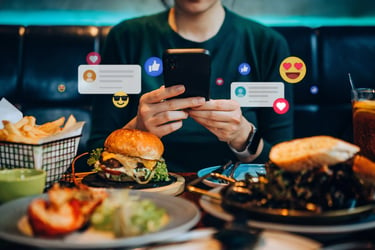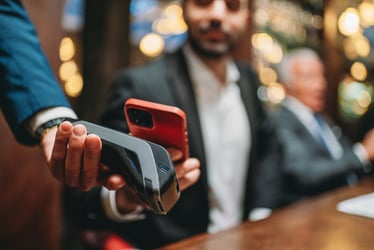Related Posts



You are about to leave Risk Strategies website and view the content of an external website.
You are leaving risk-strategies.com
By accessing this link, you will be leaving Risk Strategies website and entering a website hosted by another party. Please be advised that you will no longer be subject to, or under the protection of, the privacy and security policies of Risk Strategies website. We encourage you to read and evaluate the privacy and security policies of the site you are entering, which may be different than those of Risk Strategies.

To sell alcohol, your business must carry the liquor liability coverage required by your state or local jurisdiction. Unfortunately, the cost for this insurance keeps rising, leading to increased financial pressure on the hospitality industry.
Just one liquor liability claim can place your business in fiscal jeopardy. Here’s a brief overview of the challenges, along with steps you can take to protect your establishment.
Many restaurants, bars, taverns, and venues are facing double-digit premium increases. Why? Over the past five years, liquor liability claim frequency and severity have grown significantly, along with the litigious environment.
Underwriters look at historical data to estimate future costs. With the rise of high-profile lawsuits and multi-million-dollar judgments, the historical data is no longer adequate for forecasting losses. As a result, fewer insurers are willing to underwrite liquor liability. And those who do are pricing the coverage conservatively.
Liquor liability claims often emerge weeks or months after an injury occurs. Your state may have a required reporting timeframe and/or a statue of limitations on filing liquor liability lawsuits. Know the specifics for your jurisdiction, so you can plan accordingly.
For example, in Oregon, an injured party must provide written notice to the alcohol provider within 180 days of the incident in order to pursue a claim. Then, they have up to two years from the incident date to file a liquor liability lawsuit. Many plaintiffs wait until day 179 to provide the written notice and day 729 to file the lawsuit.
During that elapsed time, you may experience staff turnover. If you have security cameras and only keep the video footage for 30 days, important evidence may be long gone. How do you remember a specific patron from six months ago or two years ago?
The unpredictability and delayed reporting of liquor liability claims contribute to insurer’s reluctance to take on the risk.
Employees are your first line of defense against potential liquor liability claims. Train them beyond state-required basics so they know how to:
Even establishments who are doing all the right things can find themselves named in a liquor liability lawsuit. This is why it’s crucial to document incidents thoroughly.
In a recent case, state police came into a bar within 48 hours of an incident, so the establishment knew about a potential liquor liability claim right away. The manager was able to secure video footage, point-of-sale data, and other documentation, which later proved pivotal in minimizing the claim. The bar had video of the specific table, knew exactly what they had served, and what the patron had consumed.
Do you have an incident log to document any liquor-related incidents, such as a brawl, dating violence, or other event? Write as much detail as possible about what happened, when, which server(s) witnessed the incident, etc. If you have video on premises, there needs to be a procedure to pull and store the video related to the incident. Similarly, you want to capture all the point-of-sale data related to the incident, so you have proof of what you served to the patron(s).
All employees need training on the documentation process and its importance. Check the incident log daily to make sure your team is documenting events thoroughly. If a claim occurs and you’re missing documentation, there will be a presumption of liability. In contrast, if you have video, an incident log, and point-of-sale data, you have a way to defend your business. Documentation can lessen the impact of a potential claim.
Do you have written policies governing whether you give doubles or stop serving shots after a certain hour? Do your bartenders have specific procedures for communicating with one another — so if you deny service to Johnny, he doesn’t try to get a drink from a different bartender?
If you suspect a patron may have over-consumed, do you pay for a rideshare to get the person home safely?
Implementing best practices for managing liquor liability will not prevent lawsuits, but you position yourself for a better outcome. You want a jury (and your insurance company) to see that you consistently take well-thought-out precautions to keep your customers and community safe.
Find Rob Hoover on LinkedIn.
Or Visit https://www.risk-strategies.com/industries/real-estate/hospitality.
Rob Hoover is a national expert on hospitality insurance and risk management. In addition to designing comprehensive insurance programs, he writes, speaks, and consults on mitigating liquor liability risk.
The contents of this article are for general informational purposes only and Risk Strategies Company makes no representation or warranty of any kind, express or implied, regarding the accuracy or completeness of any information contained herein. Any recommendations contained herein are intended to provide insight based on currently available information for consideration and should be vetted against applicable legal and business needs before application to a specific client.


